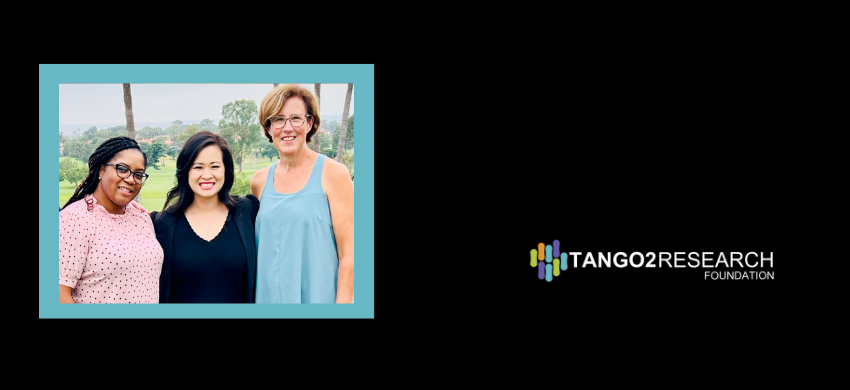Ann Geffen, Executive Director of the TANGO2 Research Foundation (T2RF), has been invited to serve as a mentor in the FasterCures and Chan Zuckerberg Initiative (CZI) Rare As One Mentorship Program. Ann was selected for her expertise in nonprofit leadership and her thoughtful approach to organizational development. In this role, she will provide guidance on capacity building, governance, and patient community engagement, supporting Michaelle Jinnette, President of the Cure KCNH1 Foundation, as they expand their reach and impact. This opportunity reflects Ann’s leadership in the rare disease community and her commitment to fostering peer-to-peer collaboration among advocacy organizations.
Deena Chisholm, Director of Research Engagement at T2RF, has been invited to mentor Eszter Hars, Founder and CEO of the Shwachman-Diamond Syndrome (SDS) Alliance, through PCORI’s Eugene Washington Engagement Award program for Building Capacity for Small Organizations (BCSO). Deena will provide strategic guidance on partner engagement, building capacity for patient-centered comparative effectiveness Research (CER), and overcoming common barriers to participation. She will also share strategies for shifting research and healthcare cultures so that patient advocacy organizations are recognized as true partners, rather than token contributors or competitors in research.
Kasha Morris, T2RF Co-founder and mother to TANGO2 warrior Ryan, has also been invited by PCORI to serve as a mentor for the next BCSO cohort. Kasha will present T2RF’s recent successes, including the development of the TDD Research Learning Network, the Research Engagement Roadmap, and the Research Toolbox, as models for building sustainable and impactful research engagement strategies.
These mentorship opportunities highlight the growing recognition of T2RF’s leadership in advancing patient-centered research and advocacy. By sharing our experiences and lessons learned, we are not only strengthening individual organizations but also contributing to a stronger, more collaborative rare disease ecosystem.



